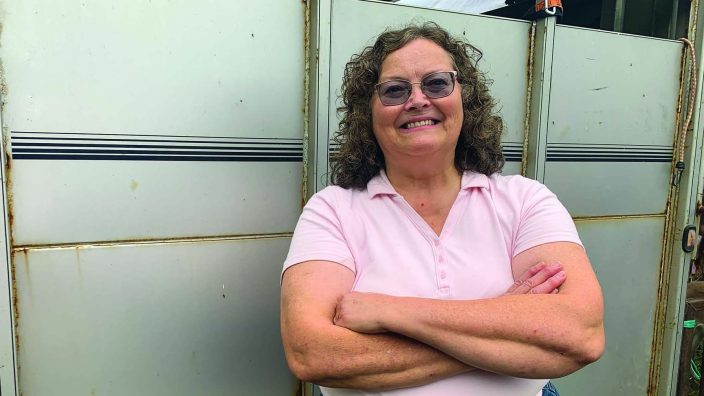Applications for Ohio Farm Bureau Health Plans now available
Members have three ways to apply: contacting a certified agent, calling 833-468-4280 or visiting ohiofarmbureauhealthplans.org.
Read MoreMary Fleming learned long ago to be prepared for just about anything as a rural nurse. But like others who provide medical care for farmers in rural America, she takes the challenges in stride.
Can’t drive her car down a snowy country lane to see a patient? She parks at the end of the lane, grabs her supplies and hikes down to the woman’s house.
Chased by an unexpectedly unleashed dog after a home visit? She races to her car and slams the door just in time.
Fleming knows farms; she grew up on a livestock and crop farm in Delaware County, married a farmer and still farms with her husband, Robert, on their farm in Delaware County where they are members of the county Farm Bureau. She has plenty of insight into what farm families face when it comes to healthcare in Ohio, where 20% of the state’s 11.7 million residents live in rural areas.
“A lot of visits to rural patients are for people who just can’t get to a doctor as often as needed,” she said.
Two healthcare problems rural residents face are distance and transportation, often living far from doctor’s offices, hospitals and medical clinics. Rural residents don’t have access to public transit like urban residents do, according to the Rural Health Information Hub, a clearinghouse for rural health funded by the Federal Office of Rural Health Policy.
Rural areas, it points out, often have more elderly residents with chronic health conditions, more residents without health care and fewer places to obtain low-cost health care services. And many rural areas have a shortage of health professionals.
“Nationally, 20% of our population lives in rural areas but rural communities are much more likely to say they have fair to poor health care,” said Audrey Snyder, president of the Rural Nurse Organization. Telehealth can help, she noted, but sometimes isn’t accessible because rural areas don’t always have the necessary Internet connection speeds.
All these issues compound the importance of rural nurses, who Snyder said typically are adaptable, flexible, able to think on their feet and feel comfortable in a community where everyone’s lives are close knit.
“You know your patients, and that can be good and bad,” said PJ Guthrie, who’s been a rural nurse for 26 years in southeastern Ohio. On one hand, she’s found that rural residents often prefer to be treated by someone they know. On the other hand, sometimes they’re hesitant to seek care because their health care provider knows them so well, said Guthrie, who’s studying to be a psychiatric mental health nurse practitioner at Ohio University.
Fleming, too, has been on the front lines of rural medicine for decades, working as a floor nurse at Grady Memorial Hospital in Delaware, training new nurses there and managing grant-funded projects to improve rural health. One campaign, in 1991, encouraged rural residents to get tetanus vaccinations after a Delaware woman who contracted tetanus from a splinter died.
“We realized a lot of rural people were not vaccinated and weren’t keeping up with their vaccinations,” Fleming said. Within a year, the percentage of adults who received tetanus vaccinations from the county health department shot up.
Through other projects Fleming documented illnesses, injuries and deaths among farmers in a six-county region and researched ways to reduce them. One was to distribute first aid kits to farms; another was to train fire personnel in agricultural accident rescues.
“Historically, agriculture has been one of the most dangerous occupations,” Fleming said. “We looked at what we can organize communitywide to reduce the fatality and disease rate and to make substantial changes to reduce the injury rates.”
When funding for the grant programs ran out, Fleming worked as a home-care nurse for seven years, driving to remote houses to change wound dressings, make cardiac assessments, monitor pain medications and check on knee-replacement patients.
Another important role rural nurses play is education. Fleming has given presentations for years about agricultural safety and continues that work. Guthrie said rural nurses often are called upon to link patients with additional resources, a job that in urban areas usually falls to others.
“You’re the patient’s person that they trust and come to for help,” she said. “Rural nurses wear more hats.”
Despite the challenges, many nurses prefer their jobs on the front lines of rural America.
“The idea that every day is going to be different and there’s a lot of variety entices some people to work in that environment. You’re constantly learning,” said Snyder, who’s been a nurse since 1988. “And there’s something to be said for fresh air and sunshine and raising your own children in a rural environment.”


Members have three ways to apply: contacting a certified agent, calling 833-468-4280 or visiting ohiofarmbureauhealthplans.org.
Read More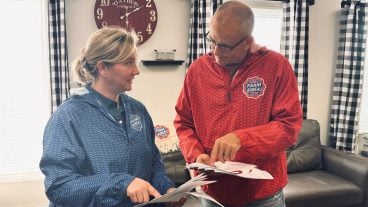
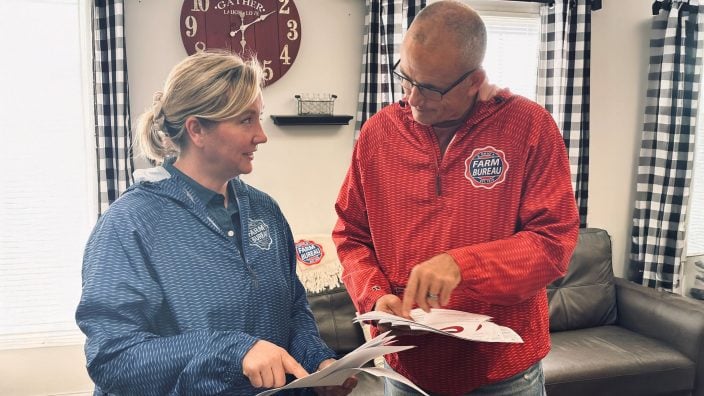
One of the best decisions Shannon and Heather Utter made a few years ago was looking into a Farm Bureau member benefit that has ended up saving them thousands of dollars on their energy bills.
Read More

Ryan Hiser has experienced first-hand the importance of having the opportunity to vote on issues that will affect his family operation and other farmers.
Read More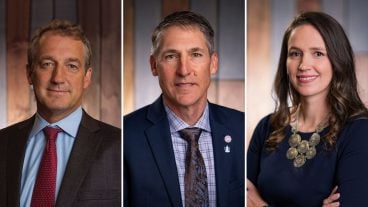
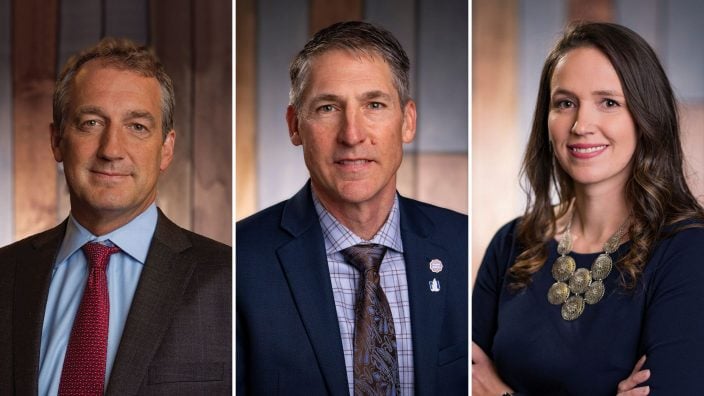
Bill Patterson, Cy Prettyman and Adele Flynn will continue to serve as officers for Ohio Farm Bureau Federation.
Read More
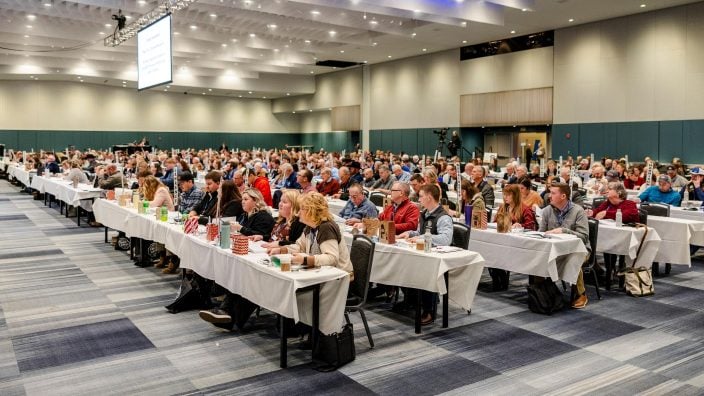
Delegates discussed many topics impacting agriculture including farmland preservation, local foods, and succession planning.
Read More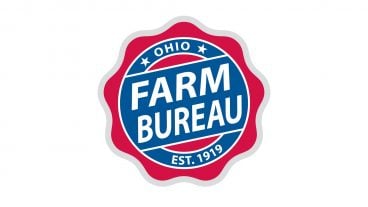
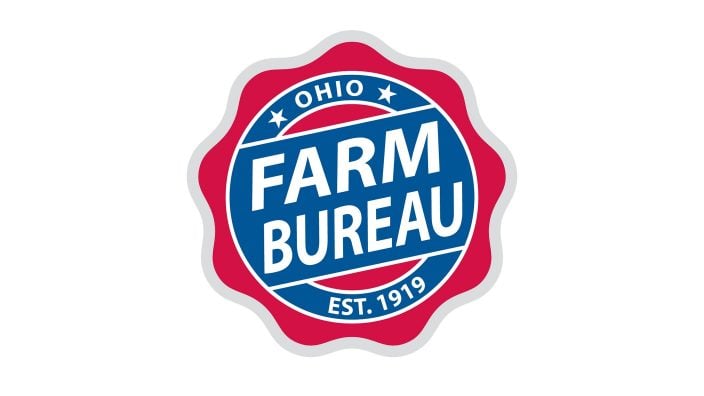
Twenty-six farmers govern the state’s largest farm and food organization.
Read More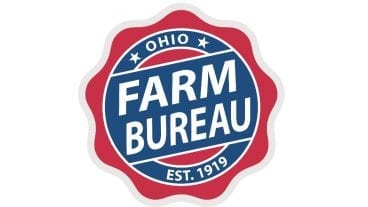
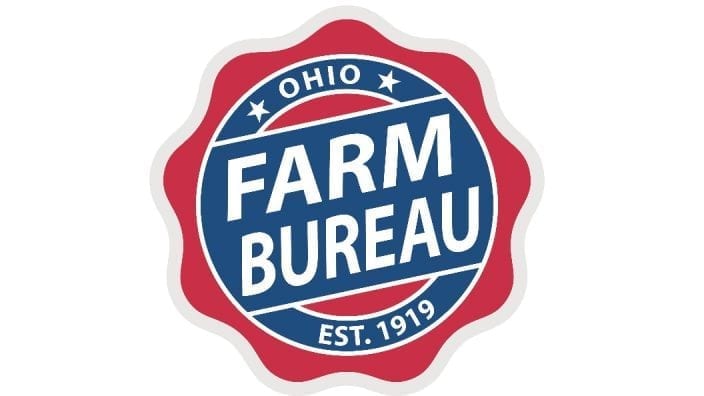
The 2025 recipients are Fred Cooke (posthumous) of Richland County, Marvin Dietsch of Williams County, Steven Knollman of Hamilton County and Michele Miller (posthumous) of Ottawa County.
Read More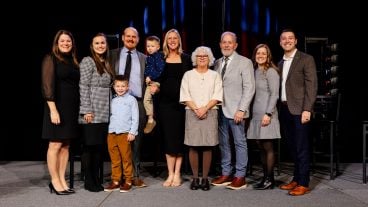
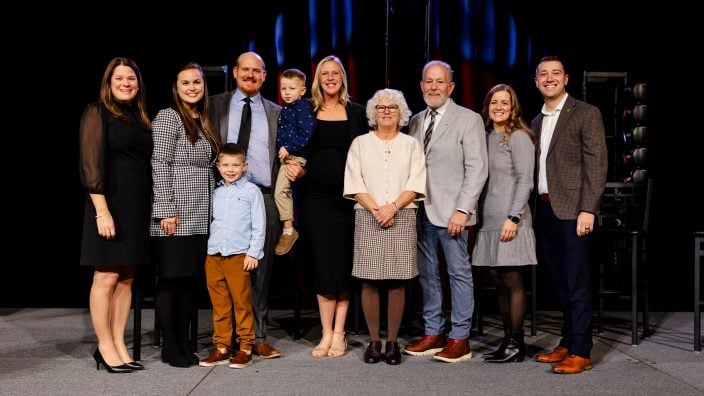
Nathan and Jill Parriman grow seasonal crops, including Christmas trees, pumpkins and cut flowers, providing U-cut experiences that invite customers to engage directly with agriculture.
Read More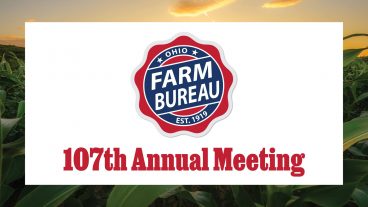
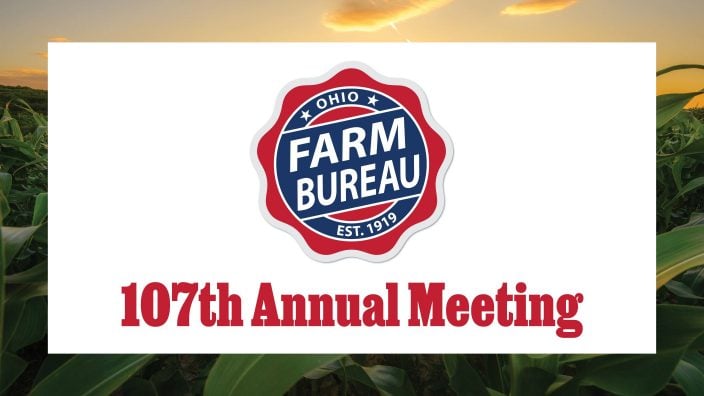
The 2025 Distinguished Service Award recipients are Craig Adams, Mike Townsley, and Kellogg Farms, Kurt Farms and Stateler Family Farms.
Read More

Ohio Farm Bureau Treasurer Adele Flynn participated in the meeting, representing Ohio farmers.
Read More